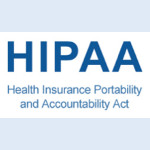Actiance, a provider in communications compliance, archiving, and analytics, has announced the Actiance Platform for the healthcare and pharmaceutical industries.
“Actiance’s next-generation, cloud-based, unified platform addresses new and existing regulatory retention and security and privacy requirements, while reducing the risk and expense of costly eDiscovery and compliance activities,” the company said in a release. “With the Actiance Platform for the healthcare and pharmaceutical industries, organizations can embrace new communications channels while protecting data and ensuring compliance.”
The release continues:
Similar to financial services, the healthcare and pharmaceutical industries are highly regulated and highly litigious. The introduction of new regulations, constant changes to existing protocols, and the explosion of collaboration technology has necessitated healthcare and pharmaceutical companies to update their information management strategies. Regulations, including the 2009 American Recovery and Reinvestment Act (ARRA), the 2013 HIPAA Omnibus Final Rule, the Affordable Care Act (ACA), and the Physician Payment Sunshine Act final rule (42 CFR Parts 402 and 403), govern processes like Electronic Health Record (EHR) adoption, Centers for Medicare and Medicaid Services (CMS) reimbursement, and document retention and management for everything from drug research and development to sales and marketing. Innovations, such as telemedicine and doctor-patient chat, led to laws for Protected Health Information (PHI) and Electronically Stored Information (ESI).
“Patients are taking greater control of healthcare decisions and increasingly demand real-time communications across new channels such as Skype and social media. However, due to regulatory and legal requirements associated with health-related data, the healthcare industry has been slow to respond. With the strain of new channels and huge increase in health data, existing record retention systems originally designed for email capture are reaching their breaking points,” Kailash Ambwani, CEO, Actiance. “The Actiance Platform empowers healthcare and pharmaceutical organizations to meet the needs of today’s patients without worrying about regulatory compliance. This solution is another step in the right direction as healthcare decision makers grapple with the growing demand for infrastructure that meets their needs and increased regulations.”
As new communications channels and networks become available to the healthcare and pharmaceutical industries, records management responsibilities become even more critical. Implementing new communications and social channels without the necessary safeguards and processes exposes firms to non-compliance with industry regulations, potential litigation, and an increased threat of security breaches and data leakage. Organizations risk steep fines and reputational damage without the proper processes, procedures, and technology in place to help manage these complex requirements.
The Actiance Platform for the healthcare and pharmaceutical industries provides:
A single point of control and security for regulated structured and unstructured content, with context, from a variety of sources, in real-time;
The ability to automatically meet regulatory compliance, data security, retention and disposition requirements for more than 70 communications channels;
Cost-effective and quick responses to eDiscovery requests, without impacting employees;
Access to employee identities and profiles maintained across enterprise and public social channels, including first-degree connections;
Increased employee productivity through automated capture, policy management, and archiving of various communications channels in one data repository;
Effective early case assessment with access to the complete archive of all relevant communications;
Automatic classification and tagging of Title 21 CFR Part 11 records based on custom lexicons; and,
Ensured compliance with FDA social media use guidelines by pharmaceutical sales and marketing departments
To learn more about the Actiance Platform, download our healthcare and pharmaceutical white papers.
Additional Information
Stay up to date with Actiance: http://www.actiance.com/blog
Become a fan of Actiance: http://www.facebook.com/actiance
Follow Actiance on Twitter: http://www.twitter.com/actiance
About Actiance
Actiance is the leader in communications compliance, archiving, and analytics. We provide compliance across the broadest set of communications and social channels with insights on what’s being captured. Actiance customers manage over 500 million daily conversations across 70 channels and growing. Customers include the top 10 U.S., top 5 Canadian and top 8 European and top 3 Asian banks. The Actiance advantage is customers stay ahead of compliance and uncover patterns and relationships hidden within their data. Learn more at www.actiance.com.
Actiance headquarters are in Redwood City, California. For more information, visit http://www.actiance.com or call 1-888-349-3223.


 Compliancy Group will present a
Compliancy Group will present a  Compliance Group will present a
Compliance Group will present a